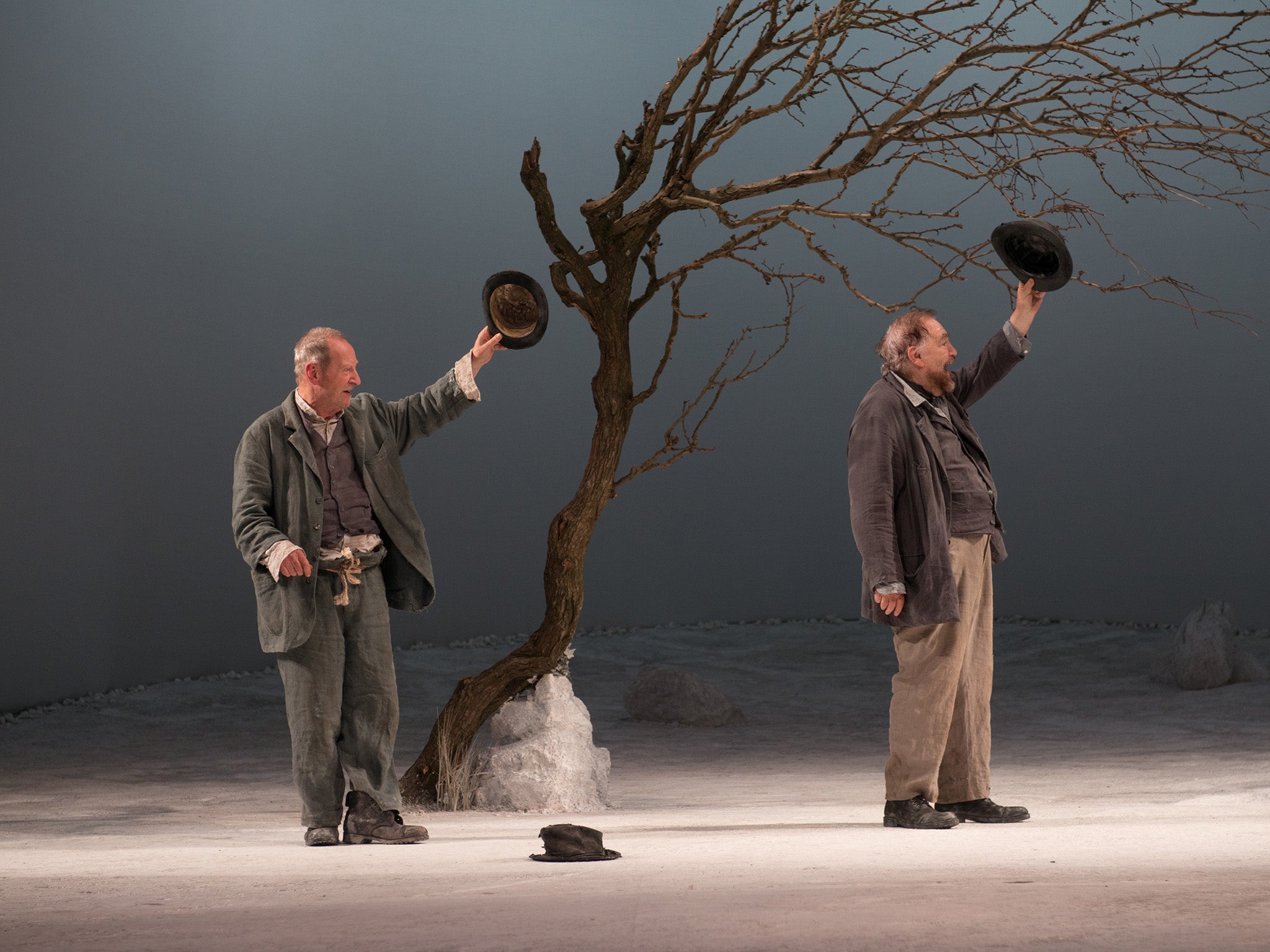Waiting for Godot, Lyceum Theatre, review: The quality and tightly-controlled subtlety of the performances rings out loud
Every resonance is thoroughly explored, but none need be mentioned, such is the level of mastery here

Your support helps us to tell the story
From reproductive rights to climate change to Big Tech, The Independent is on the ground when the story is developing. Whether it's investigating the financials of Elon Musk's pro-Trump PAC or producing our latest documentary, 'The A Word', which shines a light on the American women fighting for reproductive rights, we know how important it is to parse out the facts from the messaging.
At such a critical moment in US history, we need reporters on the ground. Your donation allows us to keep sending journalists to speak to both sides of the story.
The Independent is trusted by Americans across the entire political spectrum. And unlike many other quality news outlets, we choose not to lock Americans out of our reporting and analysis with paywalls. We believe quality journalism should be available to everyone, paid for by those who can afford it.
Your support makes all the difference.To any theatregoer, the story is familiar. After all, there isn’t much to tell; two vagrant men stand at the base of a tree and wait for Godot, who may or may not come. In this 50th year of the Royal Lyceum Theatre Company and the final year of artistic director Mark Thomson’s 13-year leadership, the decision has been taken to focus on simplicity and star quality in this new version of Samuel Beckett’s 1953 masterpiece.
Amidst designer Michael Taylor’s brilliantly-conceived set of snow-blasted nothingness, stretching off into the false horizon, the casting of Scots actors Brian Cox and Bill Paterson as the eagerly doltish Vladimir and the world-weary Estragon is a pairing to grab the attention far and wide.
The quality and tightly-controlled subtlety of the performances ring out, each period of silence or slightest change in mood played to perfection. The material is treated with poignant respect, but not fawned over; the pair call to mind an existentially-troubled Laurel and Hardy, with Cox’s fierce clowning skills a particular revelation.
As savage but genteel aristo Pozzo and his manservant-cum-slave Lucky, John Bett and Benny Young also provide high-level support. Every resonance is thoroughly explored – is it about friendship? Age? Death? Dementia? – but none need be mentioned, such is the level of mastery here.
Join our commenting forum
Join thought-provoking conversations, follow other Independent readers and see their replies
Comments